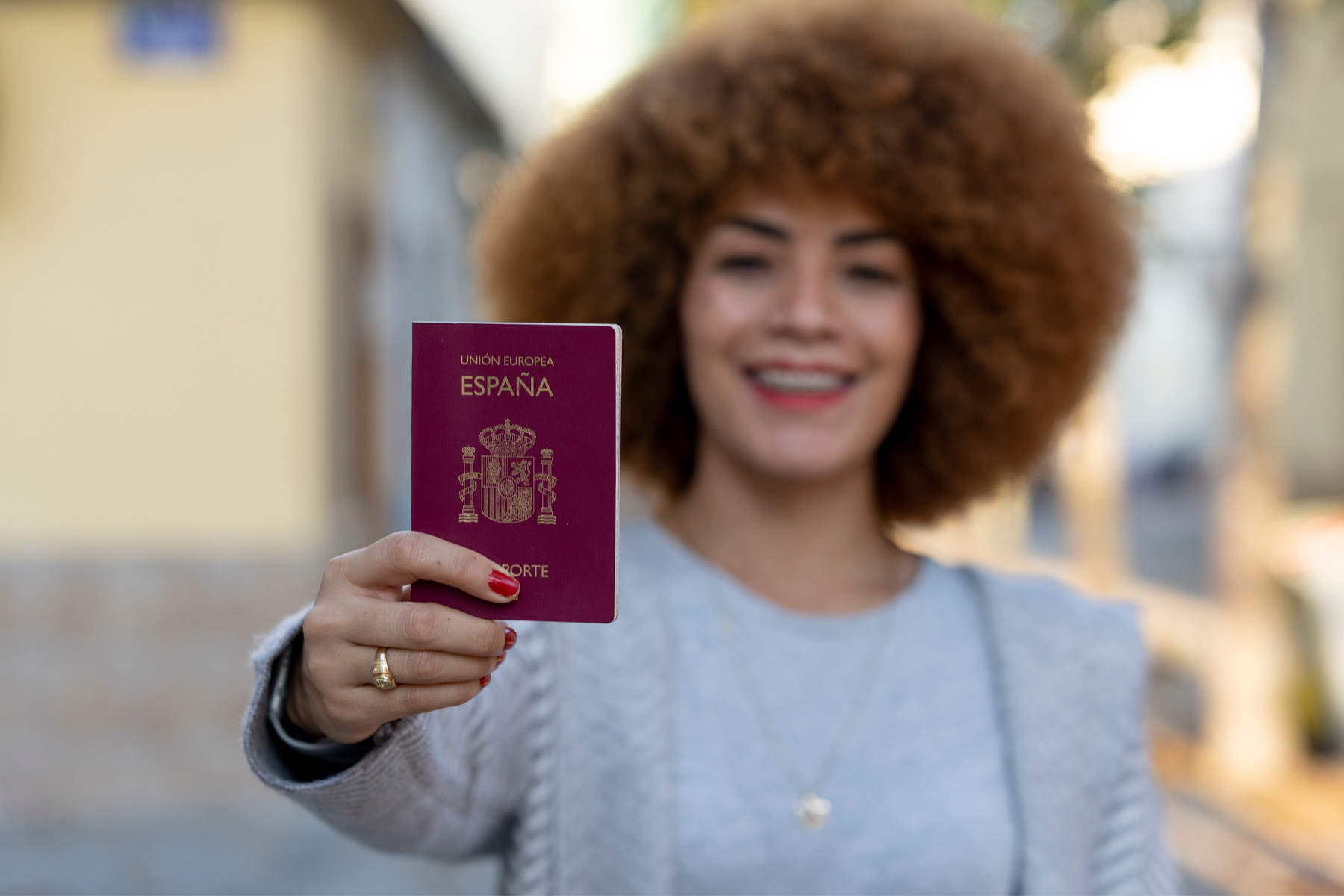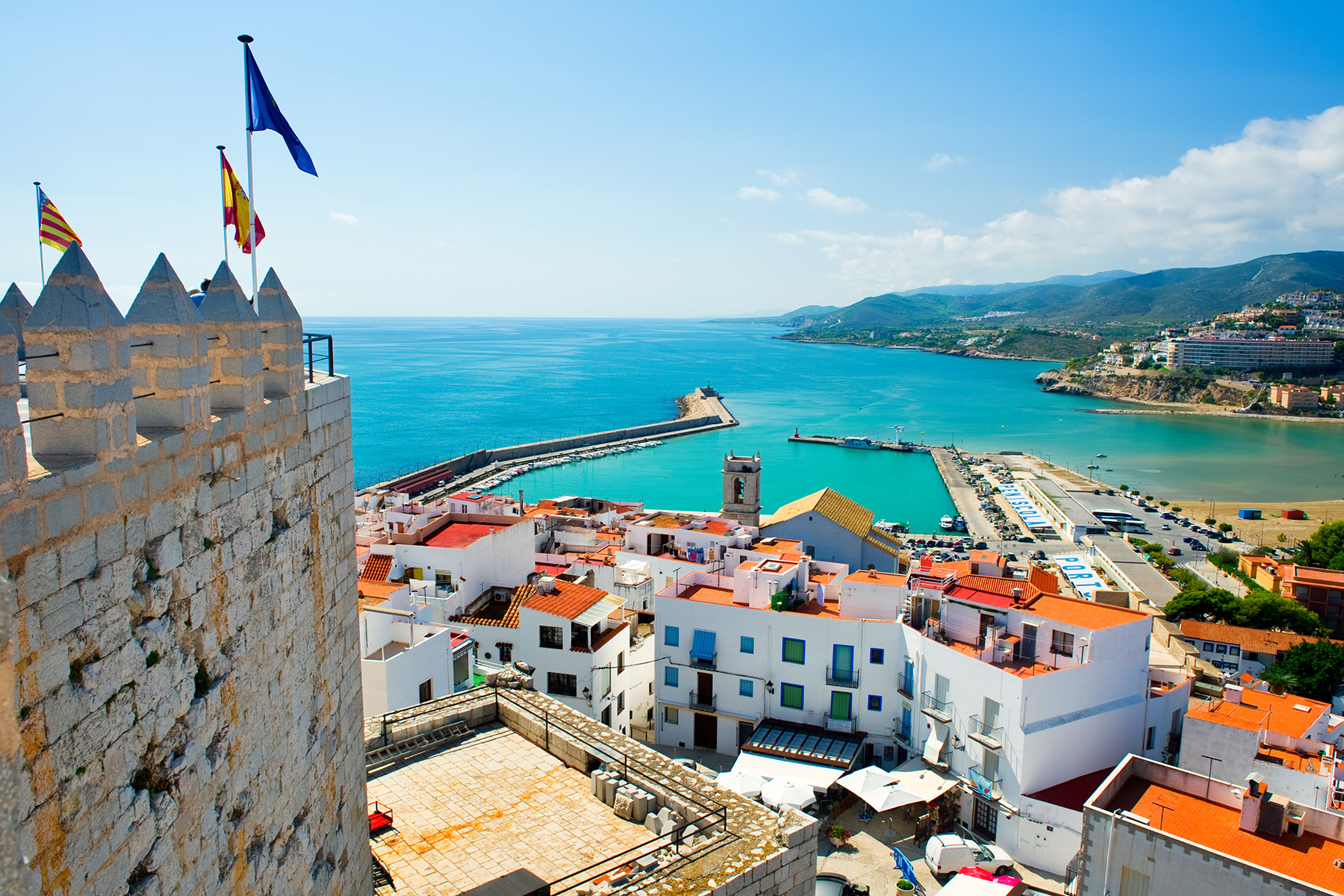Thinking about going to Spain? Before packing your bags and heading to this stunning Mediterranean country, make sure you’ve sorted your visa. Whether you’re transferring through an airport, going on holiday, working, studying, or even retiring, it’s essential to have the right documents so encounters with the border authorities go smoothly.
The rules for visiting and immigrating to Spain can vary. Much also depends on your country of origin. Find out if you require a visa for Spain and which one you need:
ReloAdvisor
Thinking about moving to Spain? Make sure you start your Spain adventure on the right foot by checking out your options on ReloAdvisor. Compare quotes from some of the world’s biggest relocation specialists and find the best option for you. Start your new journey right with ReloAdvisor.
Overview of Spanish visas
A little more than 9 million of Spain’s 48 million residents are foreign-born. In the second quarter of 2024, the highest number of new Spanish residents came from Colombia, Morocco, Venezuela, Peru, and Italy.
Many immigrants who arrive in Spain require a visa. However, as Spain is a member of the European Union (EU) and Schengen Area, EU citizens should find it straightforward to move there.

The Spanish Ministry of the Interior (Ministerio del Interior) and the Ministry of Foreign Affairs (Ministerio de Asuntos Exteriores) both deal with immigration matters.
Who needs a visa for Spain?
Spain’s visa rules vary. The ease with which you can travel to and through Spain largely depends on its agreements with your country of origin.
EU/European Economic Area (EEA) nationals
Citizens of the EU, the European Economic Area (EEA), and Switzerland don’t need a visa to visit, live, work or study in Spain. All you need is a valid personal identity card or passport issued by an EU/EEA country.
However, if you plan to stay long-term you must register with the Spanish authorities and get a national identity number (número de indentidad de extranjero – NIE). You must do this within three months of your arrival.
Non-EU/EEA nationals
Nationals from most countries outside the EU require a visa to enter Spain, regardless of the purpose of their visit. However, many countries have an agreement with the Schengen zone that allows their citizens to stay for up to 90 days in a 180-day period without a visa.
UK citizens who were not legally resident in Spain before 1 January 2021 must also acquire a visa for stays of over three months.
Different types of Spanish visas
The visa you’ll need depends on the duration of your stay and the type of activity you’ll be carrying out.

Spain has numerous visas, including the following:
- Short-term visa (visado de corta duración): valid for stays of up to 90 days
- Schengen or C-type visas
- Airport transit visa (visado de transito aeroportuario)
- Long-term national visa (visado nacional): for longer than 90 days
- Work visas (visados de residencia y trabajo)
- Student visas (visados de estudios)
- Non-lucrative visas (visados de residencia no lucrativa), including those for retirement and family/spouse visas
Work and study visas allow you to earn money while living in Spain, but non-lucrative visas do not.
Later in the article, you can find out who each visa is for and their requirements. However, if you need assistance with any aspect of immigration when moving to Spain, it’s worth consulting a legal expert to assess your options. The following firms specialize in guiding expats through visa processes and other immigration matters:
Short-term visas for Spain
Short-term visas apply to stays of less than 90 days in Spain. You will need to obtain one if either of the following statements applies to your situation:
- You are a national of a country that is not in the Schengen Area and does not have an agreement for visa-free travel.
- You are a national of a country that has reached a visa-free movement agreement with the Schengen states, but you were previously barred from entering Spain or any other Schengen country without a visa.
From mid-2025, citizens of countries who can currently enter Spain without a visa will need to obtain an ETIAS Visa Waiver which will be similar to the US ESTA.
Spain has several types of short-stay visas. The visa you need depends on your reason for entering the country.
Do I need an airport transit visa for Spain?
Citizens of the following countries need an airport transit visa (visado de transito aeroportuario) for Spain when taking a connecting flight to or from an airport outside the Schengen area:
| Transit visa required for all Schengen countries | Transit visa required for Spain |
| Afghanistan Bangladesh Democratic Republic of the Congo Eritrea Ethiopia Ghana Iran Iraq Nigeria Pakistan Somalia Sri Lanka | Cameroon Côte d’Ivoire Cuba Djibouti Gambia Guinea Guinea-Bissau India Liberia Mali Palestine Republic of the Congo Sierra Leone Syria Togo Yemen |
An airport transit visa allows you into the international transit zone at an airport in Spain.

However, if you already have a Schengen or other visa or residence permit, you won’t need a transit visa. Check with the Spanish embassy or consulate in your home country before traveling to find out specific conditions.
Short-stay Schengen visa for Spain
Like most EU countries, Spain is a Schengen Area country. This means that if you have a short-stay visa issued by another Schengen state, you can also visit Spain.
A short-stay Schengen visa (visado de corta duración), or C-type visa, allows you to stay in Spain for up to 90 days in a 180-day period. It typically costs €90 for adults and €45 for children between the ages of six and 12. However, the fees can vary depending on other factors, such as the purpose of the visit and your nationality.
Short-stay Schengen visa requirements
Spain’s visa rules dictate that you must meet certain requirements to receive a short-stay Schengen visa. These include showing proof of valid travel insurance, a round-trip itinerary, and proof of sufficient financial means. You cannot work or earn money while visiting Spain with a Schengen visa.

To renew your short-term visa, visit your local Foreigner’s Office (Oficina de Extranjeros) or police station. Keep in mind that Spain’s visa rules do not allow you to change your visa status when in Spain on a short-stay permit. To change your status you must return to your home country and apply for a new visa from there.
Schengen visa categories
- Tourist visa – for tourism, holidays, and sightseeing
- Visitor visa – for visiting friends or family members residing in Spain
- Business visa – for business-related activities
- Official visit visa – for official delegations coming to Spain on an official trip
- Medical visa – for people seeking medical treatment in Spain
- Study visa – for students on courses of up to three months at a Spanish educational institution
- Spanish visa for cultural, sports, and film crews – for people attending an activity in Spain related to these categories
Contact the Spanish embassy or consulate in your own country to apply.
Long-term visas to live in Spain
For long-term stays in Spain, you need a national visa (visado nacional), unless you’re a citizen of the EU/EEA or Switzerland. This document, also called a D-type visa, allows you to live in the country for longer than three months.
Typically, these visas are valid for one to five years, renewable, and less restrictive. As such, you are free to work, study, or carry out research in Spain with this type of visa.
Keep in mind that the approval process can take eight weeks or more, and the fees vary depending on your nationality.
Work visas for Spain
There are several types of work visas in Spain. However, you should be aware that you cannot generally apply for these visas on your own. Spain’s visa law dictates that your employer must apply on your behalf. This means you will need to have a contract and offer of employment.
You will first need a work permit before applying for your visa. These are generally issued at the local level by work and immigration offices (delegación provincial del Ministero de Trabajo e Inmigración) in Spain’s autonomous regions. For example, Barcelona’s Work and Immigration office will issue your work permit if you get a job in the Catalan capital.
A work visa is usually valid for one year and you can renew it for up to five years. After five years, you are eligible for permanent residency in Spain.
You can read more about the requirements and application processes for work visas in our dedicated article.
Spanish visas for freelancers
If you intend to work as a freelancer or carry out other self-employed activities, you will need to apply for a self-employed (autónomo) work permit yourself.
You can read about the specific requirements for a self-employed visa in our article on work visas for Spai.
Digital nomads and remote workers
Spain has been awarding visas to to digital nomads and remote workers since passing a draft Startup Law in November 2021. The visa has been available since 2023.
This document allows for up to five years of residency in Spain and may include tax benefits. If the following applies to you, you may be able to apply for a Digital Nomad Visa:
- Non-EU/EEA citizen
- Working remotely for an employer outside Spain
- An undergraduate or postgraduate degree or three years of work experience in your current field
Working holiday visas
If you’re under 30, you can only apply for a Spanish working holiday visa from a Spanish embassy or consulate in your home country.

Spain has working holiday visa agreements that apply to citizens of:
- Australia
- Canada
- Japan
- New Zealand
- South Korea
With this visa, you can live in Spain for a year. You can also work for three months per employer and visit other EU countries.
Golden Visa for Spain – closed April 2025
The Spanish ‘Golden Visa’ was an option for investors to move to Spain by way of purchasing financial assets or property, or investing in a business project.
The Spanish government officially stopped accepting Golden Visa applications on 3 April 2025 to combat the country’s rising housing costs. You can still find historical information about Spanish golden visas in our article on the topic.
Do I need a visa to study in Spain?
Non-EU students first need to be accepted by an educational institution, after which they must apply for a student visa.
The visa is valid for the duration of your study program. With this visa, you are free to live, study, carry out research, or take on an apprenticeship in Spain. You can also do paid work for up to 20 hours per week with this document.
Non-lucrative visa (NLV)
There are several cases where a non-EU national might move to Spain for reasons other than work. These situations include:
- Financially independent individuals
- People joining family
- Retirees
In these cases, you should apply for a non-lucrative visa (visado de residencia no lucrativa). This is a type of national visa that allows you to live in Spain without working, and you must prove that you have the financial means to support yourself during your residence.

Do keep in mind that it forbids all types of gainful activity, including remote work. If you intend to work remotely in Spain or as a freelancer it is best to explore other options such as the self-employed (autónomo) work permit or digital nomad visa.
Which visa do I need to retire in Spain?
If you want to retire in Spain as a non-EU/EEA citizen, you can apply for Spain’s non-lucrative residence visa.

The visa allows you to stay in Spain for one year after entering the country. You must spend a minimum of 183 days in the country to be able to renew. This also means that you will become a tax resident and taxable on your worldwide income (subject to double tax treaties). The visa can be renewed every two years until you get permanent residency, which is available after five years in the country.
Spain spouse and family reunification visas
Once you have been living legally in Spain for a year, and have official confirmation that your visa will be extended by a year, you can apply for family members to join you. This includes your spouse, common-law partner, children under 18, or parents over 65. Most types of long-term visas allow for this, including:
- Work visas
- Student visa
- Non-lucrative visa
If you hold a long-term residence permit from another EU member state (or an EU Blue Card), you can apply at any time.
However, you should check carefully when applying, as not all visas allow you to work.
If you want a Spanish spouse visa, you will need to apply for family reunification (reagrupación familiar). People not already living in Spain can apply via their local Spanish embassy. If you are already in Spain, visit the local Foreigner’s Office, taking all the required documents with you.
General requirements for Spanish visa applications
Although different visas have different criteria for applying, there are several documents that you’ll almost always need. These include:
- A visa application form: either for a Schengen visa or national visa
- A passport-sized photograph
- A valid passport
- Visa fee
- Proof of financial means where necessary
- Health insurance (or travel medical insurance for Schengen visa)
Medical requirements for Spanish visas
Every visa for Spain comes with specific medical requirements. Both Schengen and Spanish national visas require health insurance coverage, while national visas also require a medical certificate. You’ll need to provide evidence of your coverage, usually a copy of your insurance policy.
The medical certificate is a document signed by a doctor, confirming that you do not have any diseases that are dangerous to public health. The rules vary according to your visa type and where you are traveling from.
For the specifics, read about medical requirements for Spanish visas.
Asylum seekers and refugees in Spain
Spain received 57,071 asylum applications in 2023. Spain has a relatively low acceptance rate of asylum applications – only 11% in May 2024. In 2023, most applicants came from Senegal, Mali, and Morocco.
Anyone who wishes to apply for asylum in Spain, including minors under the age of 18, may do so at:
- Border checkpoints – whether it is a port, airport, or land border in Ceuta or Melilla. You must notify the National Police or Civil Guard that you want to seek asylum, refuge, or international protection in Spain.
- Immigration offices or police stations – those already in Spanish territory must go in person to one of these offices to make an appointment.
- Immigration Detention Facilities (CIE) – if you have already been detained and wish to apply for asylum, you must notify the facility’s management.
- Prisons – you may also request international protection if you are in jail by notifying prison management.
You should apply for asylum within the first month of your arrival in Spain. The European Council on Refugees and Exiles web portal offers more details on the official process and regulations.
Permanent residence and citizenship in Spain
After five uninterrupted years of temporary residence in Spain, you can apply for a long-term or permanent residence. You are also entitled to permanent residence in Spain if you hold a Blue Card from another EU member state and lived elsewhere in the EU for the same period.
A long-term residence permit allows you to stay in Spain indefinitely. Permanent residency affords you most of the same rights as Spanish citizens, with the notable exception of voting in elections.

If you want all of the rights of citizenship, you can apply for Spanish nationality after 10 years of residence. You can also acquire Spanish nationality through marriage, or if your parents are Spanish and you were born outside Spain.
Arriving in Spain
All non-EU/EEA travelers need to present the following documents to the border police when they arrive at a Spanish port of entry:
- A passport or travel document: This must be valid for at least three more months beyond your planned date of exit from the Schengen Area. Also, it must have been issued within the last 10 years.
- Your visa: if you are subject to the Spanish visa regime.
- Proof of accommodation: A document that shows where you will be staying during your time in Spain, such as a hotel booking or rental contact.
- A return or round-trip ticket (for short stays): Or proof of onward travel, if you do not plan to return to your home country upon the end of your stay in Spain.
- Purpose of entry documents: These can include work contracts, travel itineraries, or university acceptance letters.
Within 30 days of arriving in Spain, all non-EU/EEA and Swiss citizens staying for longer than three months must apply for an identity card (tarjeta de identidad de extranjero or TIE). You have to apply at the Foreigner’s Office (Oficina de Extranjeros) or a police station in your province.
Documents you will need include:
- A valid passport
- Color passport photos
- Completed application form
- Proof of payment of the card fee
- Proof of social security registration
The TIE card will be valid for the duration of your Spain visa and residence permit.
Registering on El Padrón
You should also get a certificado de empadronamiento by registering on the population register called the padrón at your local town hall or municipal office. In some cities, you can also do this online or by phone.
Legalization and translation of documents
When applying for a Spanish visa, documents that aren’t in Spanish may need to be officially translated. If they’re from abroad, they may need to be authenticated using an apostille seal in the country that issued them. You might want to consult a notary to assist you.
Translations must be done by translators certified by the Spanish Ministry of Foreign Affairs and Cooperation (Ministerio de Asuntos Exteriores de España). Contact the Spanish embassy or consulate in your home country for more information.
Appeals and complaints
There are several online Spanish visa tracking systems for specific nationalities. These allow you to monitor the progress of your application. Here are some examples:

Immigration Consultant
Naomi Botero
Insider Tip: Visa delays
Don’t panic if your visa or permit takes longer than the government estimates.
The law says you should get a decision on your visa or residence permit within six months, but it doesn’t always happen. I’ve heard of cases where people waited much longer but were still approved. If this happens to you, don’t lose hope – follow up on your case and, if needed, get help from a professional who can push things forward.
If your application for a visa is rejected, you can appeal the decision. As such, you have two options. Firstly, you can choose an administrative appeal. This means appealing to the diplomatic mission that rejected your visa application in the first place.
You have one month to complete the appeal form and submit it for review. This will allow you to explain why you think the visa should be granted. However, if you don’t receive a written reply within one month from the date of your appeal, you should consider the decision as final.
Secondly, you have the option to lodge a judicial appeal. This must be submitted to the High Court of Justice in Madrid (Tribunal Superior de Justicia de Madrid) within two months of your visa being denied. You will, of course, need a lawyer if you choose this route.
Useful resources
- Ministry of Foreign Affairs – for information on immigration, visas, and more
- Spanish consulates and embassies – for contact details worldwide












